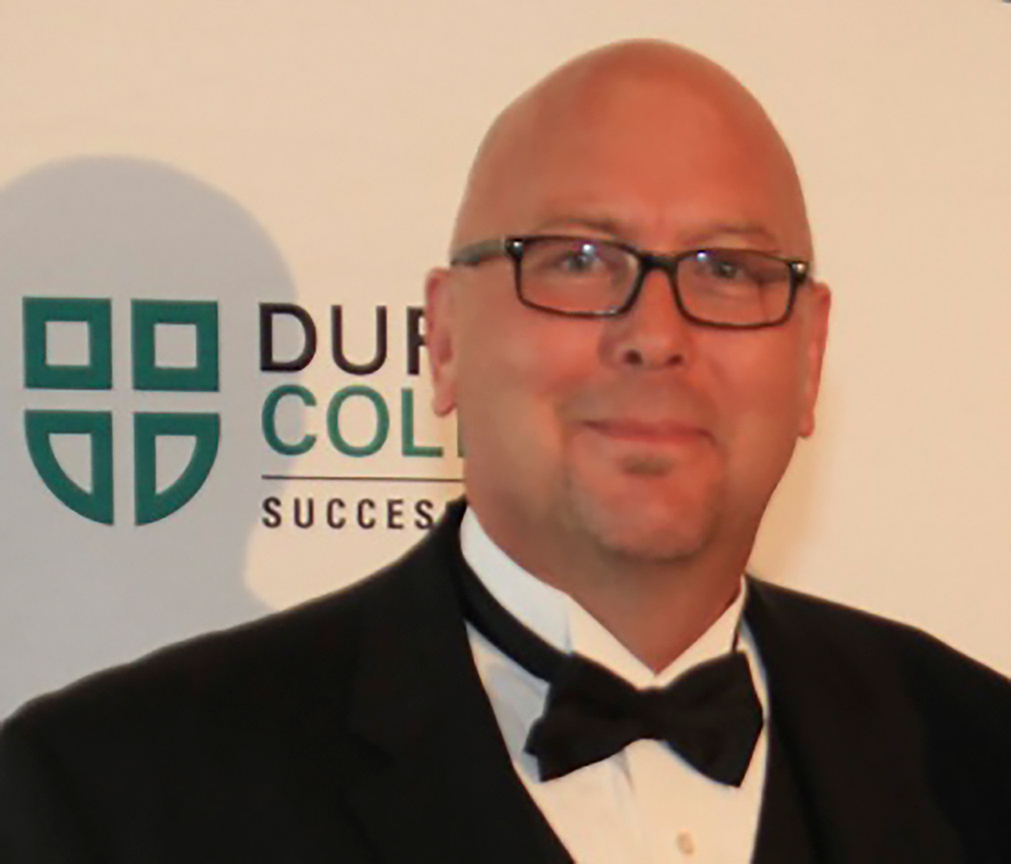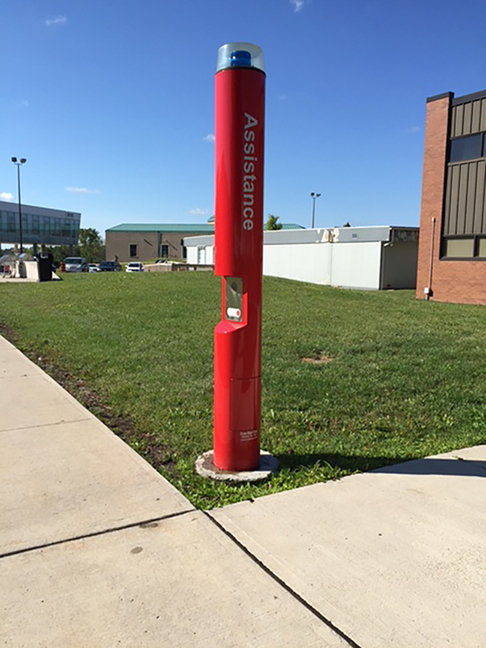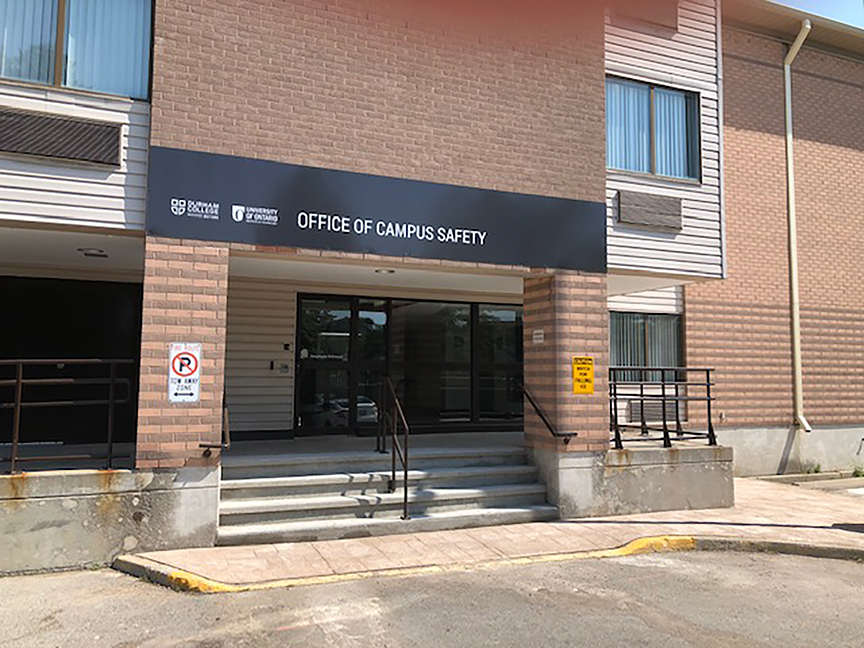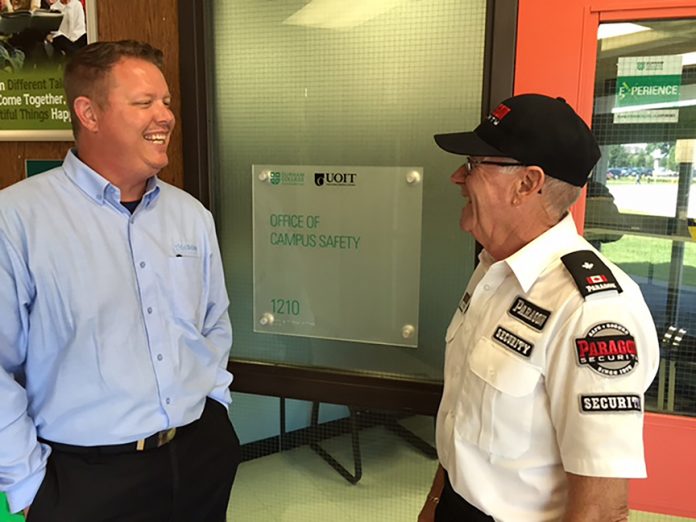Students coming to Durham College and Ontario Tech University have been almost completely compliant with COVID-19 safety protocols since the school’s doors re-opened in September.
That’s the word from Tom Lynch, director of the office of campus safety.
“We have had some challenges at our entry points,” he said, “but in general I think people want to come to school and be safe, so they are buying into the process.”

All six of Oshawa’s entrances are open, but there are about one to two conflicts a week, according to Lynch.
“That’s pretty good because we got thousands of students coming in,” he said.
“I would say 99 per cent compliance with what we do. There have been a couple instances with vaccine uploads or students walking past guards, but the matters were resolved without any significant conflict.”
Due to COVID-19, security guards are required to pre-screen, enforce mask wearing, social distancing and the vaccine policy.
Security guards are “the front facing people” and encounter instances of “disgruntled people,” said Lynch, adding “we have to remember it’s not the security’s decision.”
The college now undergoes random monthly ‘spot audits’ from Durham Region Public Health, according to Lynch. Health inspectors come to the campus to observe and make sure mandatory protocols are followed.
“There’s been a significant change and COVID has brought that around where security is much more present and accountable to all of these rules and laws,” said Lynch.
Roughly a dozen audits have been completed and the college has “passed with flying colours,” according to Lynch.
“We’re trying to get students back on campus,” he said. “We’re trying to get back to that needing of normalcy that we’re all just so much looking for.”
Security guards have had to possess the “ability to adapt and change” as COVID-19 rules and protocols have evolved, Lynch said. “When there’s change like that, sometimes there’s confusion.”
“Security is very often called to enforce policies or procedures or rules that are made by the institutions or the government,” said Lynch. “It’s important to understand that they are the representatives of the decision–makers.”
The guards also overlook community safety by responding to medical calls, conflicts or walking students to their destination.

They also have a responsibility to “observe and report” and are “the eyes and ears” of the school, he said.
During COVID-19, security has seen a reduction in calls for assistance because there have been fewer students on campus.
“A lot of our calls for service come from the fact that we at Durham College can have 10,000 to 12,000 students and faculty,” said Lynch. “That presence ultimately feeds what security has to do.”
If the number of campus attendees is low, there aren’t as many calls as usual.
“The numbers are starting to creep up, we’re starting to see more calls as the campus gets bigger.”
There are about 125 security guards, 70 of whom work throughout the day, according to Lynch.

“It’s important for me to say we do have instances where students and security don’t get along, but those are the exceptions,” he said.
“I think there’s a lot of credit that needs to be given to our student population in how they treat our security because we’re a community and we work together to keep this environment safe.”




